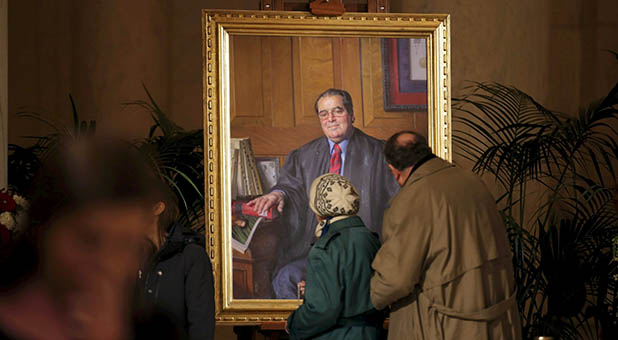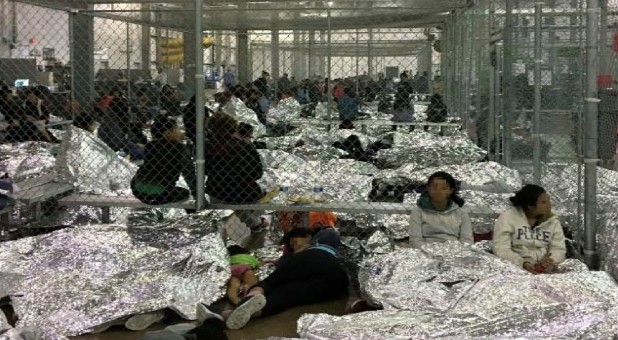As the body of Supreme Court Associate Justice Antonin Scalia lies in repose in the Great Hall of the Supreme Court, politicians and legal minds alike are wrangling over who his replacement should be, when he or she should be nominated, and by whom.
But in his scathing rebuke of the Supreme Court in his dissent of Obergefell v. Hodges, Scalia provided his own sound advice. Evangelical leader Dr. Richard Land, who serves as president of Southern Evangelical Seminary, says Scalia’s insightful words provide a blueprint for how a more diverse Supreme Court should benefit—and represent—all Americans. “Justice Scalia left the nation a virtual legal memo with some unexpected advice on qualities we should look for in a future successor on the nation’s highest court, mainly religious, educational and geographic diversity,” he said. “In Justice Scalia’s strongly worded dissent in last year’s Obergefell-Hodges decision, which mandated same-sex marriage in all 50 states, Justice Scalia said the following: ‘To allow the policy question of same-sex marriage to be considered and resolved by a select, patrician, highly unrepresentative panel of nine is to violate a principle even more fundamental than no taxation without representation: no social transformation without representation.'” Land continued:”What did Justice Scalia mean? Well, the current Court, prior to Justice Scalia’s death, consisted of nine justices; four of the justices were from New York City, and if you count Justice Alito from suburban New York and New Jersey, five of the justices come from greater New York. Of the other four, two were from California—Kennedy and Breyer—and one was from Georgia—Thomas—with just one justice, Chief Justice Roberts, from the vast Midwest of the United States.”Educationally, Land added, there are more common threads—four went to Harvard, three to Yale, one to Cornell and one to Stanford, and three received their undergraduate degrees from Princeton.”And this lack of diversity doesn’t stop there,” he said. “Justice Scalia also explained in his dissent that the Supreme Court had ‘not a single Evangelical Christian, a group that comprises about one quarter of Americans, or even a Protestant of any denomination.’ Before Scalia’s death, six Catholics and three Jews made up the court. Such an elitist group of judges, Scalia argued, was very likely to be dangerously out of step with the broader culture of the country they seek to serve. Indeed.
“Justice Scalia did not believe that the Supreme Court should legislate from the bench. His point, however, was that if they were going to insist on legislating from the bench, they needed to be far more representative of the country religiously, educationally and geographically.
“We should heed the late Justice Scalia’s sound and excellent advice. The next justice should be a Protestant from the vast middle of the country, anywhere from Texas in the South to North Dakota in the North or anywhere in between. And, although a Princeton graduate myself, I join Justice Scalia in strongly urging that the next justice not be a graduate of an Ivy League law school or an Ivy League college.
“Do we really believe there are no strong candidates to be Supreme Court Justices who can be found in the vast middle of the country that would alter this dangerous imbalance religiously, educationally and geographically on our Supreme Court? Of course there are many qualified candidates—extremely qualified candidates—and they need to be located and found by the president, nominated by him and confirmed by our senators. This is not about quotas or litmus tests; this is a about a critically important government institution that is dangerously out of balance with the country it took an oath to serve. This imbalance needs to be corrected, and it needs to be corrected immediately—religiously, educationally, geographically.”





